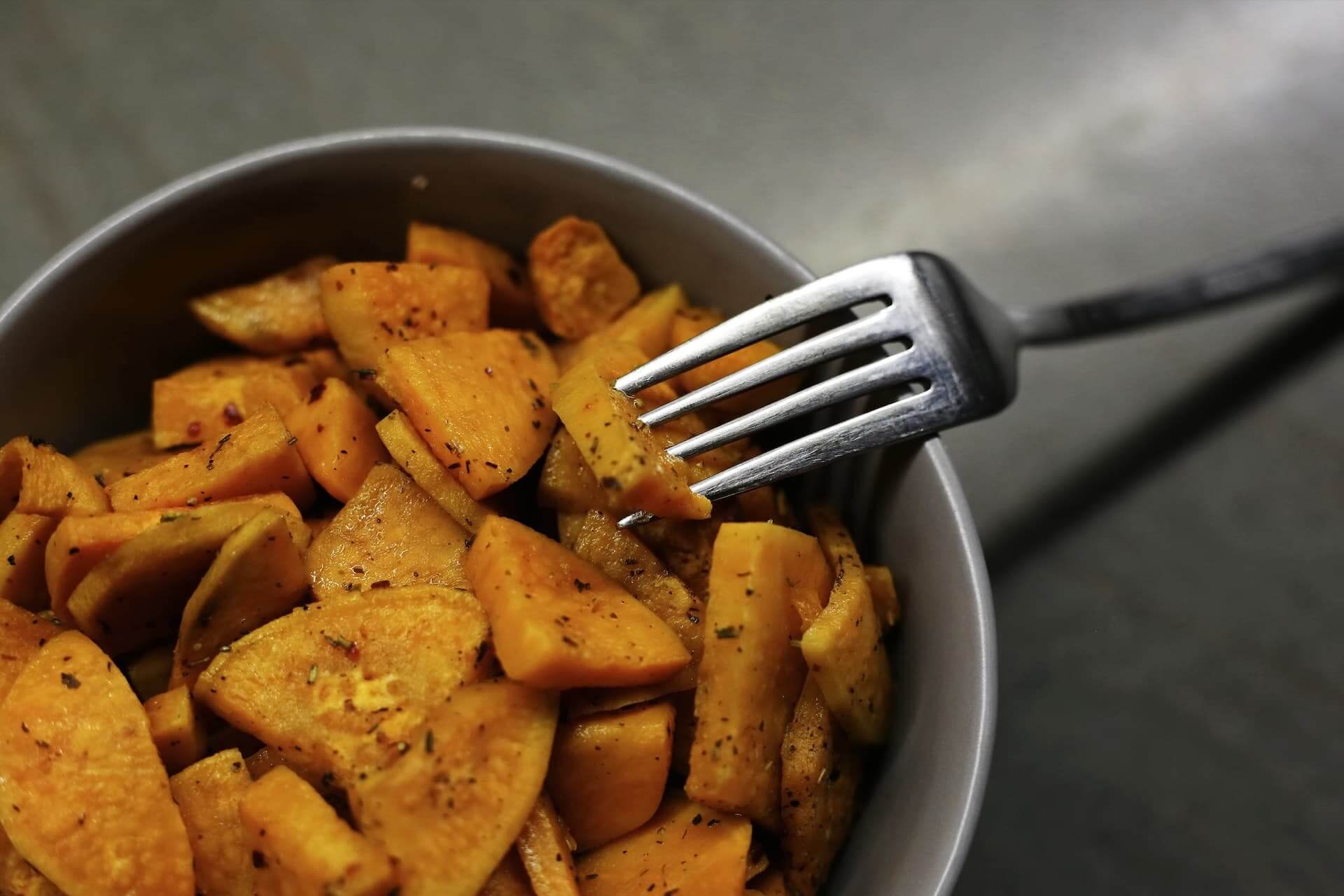What is the Immune System?
I’ve got some good and bad news for us. The bad news? We’re exposed to potentially harmful microbes every single day. The good news? Our immune system is in place to help keep us safe and healthy.
This complex network, comprised of cells, tissues, and organs, finds and eliminates unwelcome invaders from viruses, bacteria, and parasites. Our immune responses can be divided into two types of immunity: innate and adaptive immunity.
Innate or non-specific immunity is your body’s first line of defense, providing immediate but non-specific protection. It includes protective agents like skin, mucus membranes, stomach acid, and cough reflexes.
Adaptive immunity, however, is a more targeted defense mechanism. Lymphocytes recognize and develop a memory of specific antigens, helping your body respond quicker and stronger the next time it encounters the pathogen.
Conditions That Can Trigger Immune Responses
Most of us are aware of the common disease-causing germs like bacteria and viruses, but other conditions can trigger equally alarming responses from our immune system. These may include antigens, inflammation, autoimmune disorders, and immunodeficiency disorders.
Antigens are substances that the body considers foreign and harmful. People’s sensitivity to antigens can vary widely. For example, allergens are considered antigens. So, while dust and pollen may cause sneezing and coughing for some people, it may not affect others.
Inflammation can be an essential step in the body’s innate immune response. When pathogens attack healthy cells, immune cells send a counterattack and release proteins called histamines. These proteins cause inflammation and the release of white blood cells to help flush out pathogens.
Autoimmune and immunodeficiency disorders may also affect the immune system. Autoimmune conditions, such as rheumatoid arthritis and type 1 diabetes, may cause immune cells to attack and eliminate healthy cells. Alternatively, immunodeficiency disorders can disable the immune system. These disorders can be genetic or acquired.
{{mid-cta}}
Factors That Can Potentially Affect Your Immune System
Several different factors can influence the immune system. These may include:
Pollution and Other Toxins
Environmental toxins can suppress your immune system’s normal abilities. For example, smoke, air pollution, excess alcohol, and other toxins may suppress your immune cell activity.
Poor Nutrition
Malnutrition or a diet lacking in quality nutrients can impair the production of antibodies and immune cells. Furthermore, a diet lacking certain nutrients may affect your immune system.
Mental Stress
Chronic stress can release hormones like cortisol, suppressing the inflammation needed to activate immune cells. Additionally, stress can inhibit the action of our white blood cells.
Sleep and Rest Deprivation
Sleep is an important time for restoration in the body. When we rest, a cytokine is released to fight infection; inadequate sleep results in fewer cytokines and immune cells in our system.
Aging
As we age, our organs become less efficient at their jobs. As a result, immunity-related organs produce fewer immune cells, which may cause a decline in our immune systems.
Immunity-Boosting Diet: Is It a Thing?
To maintain a healthy immune system, we must prioritize our gut health. Research has shown that our gut microbiome is home to a large percentage of our immune cells.1 So, how do we support a healthy gut? Enter well-balanced nutrition and immune-boosting foods.
A well-balanced diet plays a critical role in our overall wellness. Appropriate nutrition is essential for the health and function of all cells, including our ever-so-important immune cells. While it’s unlikely that any specific superfood can offer special protection, certain dietary patterns may support a healthy digestive system and better prepare the body for microbial attacks.
The body’s immune response relies on various nutrients, including vitamin C, vitamin D, selenium, zinc, iron, fatty acids, and protein. However, diets high in processed foods may lack these essential nutrients and others.
Nutrients and Vitamins for a Supercharged Immune System
In addition to a balanced diet, some people may rely on dietary supplements to meet their needs. For example, supplements that include immune-boosting nutrients can efficiently support your gut health and immune system. These vitamins for immune system improvements can include:
- Vitamin C- Vitamin C stimulates many components of our immune system, including oxidant production and the destruction of microbes.2
- Vitamin E- Vitamin E offers several health benefits, including its role in maintaining a healthy immune system. Vitamin E supports cell membrane integrity, signal transduction, and cell division.3
- Vitamin B6- Vitamin B6 is involved in over 150 biochemical reactions, including many essential to a properly functioning immune system. Researchers have found a connection between low levels of vitamin B6 and elevated levels of inflammation in the body. Additionally, science points to a relationship between the vitamin and the production of lymphocytes and interleukins that help fight infection.4
- Vitamin A- Vitamin A affects cellular immune responses, thus enhancing immune function. Some even call it the anti-inflammatory vitamin because of its critical role in the immune system.5
- Vitamin D- Most people associate vitamin D with bone health. But did you know that it also contributes to our immune function? Vitamin D helps our immune system resist bacteria and viruses.6
- Zinc- Zinc is critical for cytokine production and the cells mediating innate immunity.
- Magnesium- Magnesium supports our white blood cells as they seek out and destroy germs. A magnesium deficiency can lead to inflammation, tissue damage, and other complications.
- Probiotics- Probiotics are good bacteria that help support a healthy gut microbiome. You can find them in active cultures such as yogurt, kefir, and some dairy products.
- Beta-carotene- Beta-carotene is a pigment in some plants, giving them their yellow and orange hues. It’s an antioxidant that our bodies convert to vitamin A and use to fend off free radicals that can lead to many chronic illnesses.7
10 Immune-Boosting Foods to Stay Healthy
Unfortunately, there isn’t a miracle food that can cure diseases or eliminate immune health concerns completely. However, eating a well-balanced diet that fits your individualized needs can help strengthen your immune system and prevent the onset or worsening of chronic diseases.
While not comprehensive, we’ve compiled a list of healthy foods that can help strengthen the immune system.
Citrus Fruits
Citrus fruits like grapefruits, oranges, lemons, and limes tend to be good sources of vitamin C, which supports the production of white blood cells and the fight against infections.
Red Bell Peppers
Red bell peppers are rich in vitamin C and beta-carotene, helping to boost your immune system.
Garlic
Garlic gets a lot of hype in the kitchen for the delicious flavor it brings to many dishes. But it also offers many health benefits, including its role in immune function. This is because garlic contains a compound, alliin, that converts to allicin when chewed or crushed. It’s this allicin that gives garlic its medicinal properties.
Spinach
Spinach earned a spot on our list, not just because it’s rich in vitamin C but also because it’s packed with antioxidants and beta-carotene. Together, these nutrients work to support a healthy immune function.
Almonds
We know that vitamin E is a powerful antioxidant that can help maintain a healthy immune system. So, if you’re looking for a vitamin E-packed snack, try almonds. You can meet your daily vitamin E needs with just one-half cup serving.8,9
Turmeric
Turmeric is a vibrant yellow spice with anti-inflammatory properties that has been used in recipes for many years. While more research is needed, the curcumin found in turmeric has been linked to immune-boosting properties like decreased muscle damage from exercise.10
Fatty Fish
Fatty fish are rich in omega-3 fat, a notably anti-inflammatory fat. You might add fish, such as mackerel, salmon, herring, and trout, to your nutrition lineup. Of course, some fish contain mercury and other potentially harmful contaminants. It’s best to talk with your doctor or registered dietitian to assess any risks according to your medical history.
Sweet Potatoes

Sweet potatoes are a nutrient-dense food packed with vitamin C and many other nutrients. Plus, their orange flesh is rich in beta-carotene, which is converted to vitamin A and used to support our immune system after consumption.
Green Tea
Black and green teas are best known for their antioxidant content, but green tea is particularly rich in epigallocatechin gallate. What’s so special about EGCG, you ask? Studies have shown that EGCG can enhance immune function. And since green tea is steamed, not fermented, its EGCG is preserved.
Additionally, green tea can be a good source of L-theanine, an amino acid that helps produce germ-fighting compounds.
Sunflower seeds
Like almonds, sunflower seeds can be a good source of vitamin E. Additionally, sunflower seeds contain selenium, which has been linked to immune function. Although more research is warranted, studies have shown that selenium can help boost white blood cell production to fight illness and infection.11
Foods That Make Your Immune System Weaker
While all foods can fit into a well-balanced diet, some may work against our immune system and should be eaten sparingly. Highly processed foods, alcohol, refined carbohydrates, and foods with added sugar may harm our immunity. These foods can lead to increased inflammation and oxidative stress.
Myths and Facts About Immune-Boosting Foods
Separating fact from fiction can be tough when it comes to nutrition’s role in our immune system, so let’s debunk a couple of myths. First, vitamin C is often crowned the MVP for preventing illness, but unfortunately, it doesn’t necessarily keep you from getting sick. However, taking vitamin C at the onset of your common cold symptoms may shorten the duration of your illness.
Next, many people throw shade on dairy products when congested. However, despite the myths, research does not support the notion that dairy affects mucus production.
8 Other Tips on How to Strengthen Your Immune System
While nutrition plays a significant role in maintaining a healthy immune system, we must also prioritize other healthy lifestyle habits.
Exercise Regularly
Regular physical activity helps you feel better, physically and mentally. Plus, it can improve your sleep hygiene and even reduce anxiety.
Avoid Smoking
Smoking can increase your risk of immune system problems. Therefore, quitting smoking can help the body fight disease and infection.
Drink Alcohol Occasionally
Over time, excessive alcohol can weaken the immune system and put you at risk for infection or illness. Therefore, if you drink alcohol, consume it in moderation, only occasionally.
Get Enough Sleep
In a world that seems to spin faster every day, prioritizing sleep often takes a backseat. But unfortunately, inadequate sleep can negatively affect the immune system and lead to various chronic disorders.
Avoid Stress
Chronic stress can weaken your immune system. Try to find ways to manage your stress through physical or mental outlets. Consider meditation, yoga, daily walks, or journaling, among many other options.
Wash Your Hands Regularly
We learned at a young age that hand hygiene is an important habit to prevent the spread of germs, and let me tell you, the science hasn’t changed. Proper hand washing is one of the most effective ways to stay healthy.
Maintain a Healthy Bodyweight
Extra weight can place stress on your body's many systems, including your immune system. However, the same is true for low body weight as well. If you have concerns about weight and its role in overall wellness, consider meeting with your registered dietitian.
Stay Hydrated
Water is vital, especially to our immune system. Our blood and lymph, which carry immune cells, need water to circulate throughout our bodies.
Healthy & Tasty Recipes to Improve the Immune System
If you’re wondering how to improve immune system functions while adding variety to this week’s menu, try these delicious, immune-boosting recipes!
Chicken soup
When you feel under the weather, is there anything more delicious than a bowl of chicken noodle soup? There might be a reason for that! Chicken soup can be packed with immune-boosting ingredients.
Bring 10 cups of reduced-sodium chicken broth to a boil. Add three diced, medium carrots, one large celery stalk, three tablespoons of minced ginger, and six cloves of garlic to the pot.
Cook the mixture uncovered over medium heat for approximately 20 minutes or until the veggies are tender. Add about three cups of whole wheat egg noodles and four cups of shredded cooked chicken breast. Let the soup simmer until the noodles are tender, and stir in one tablespoon of chopped fresh dill and lemon juice to taste.
Berry and Yogurt Parfait
If you’re searching for a quick snack and immunity booster, consider whipping up a tasty yogurt parfait. It can be as simple as throwing some berries into a yogurt cup, or try this recipe:
Scoop one cup of plain, low-fat Greek yogurt into a bowl. Scatter 1/2 cup of fresh or frozen and defrosted berries atop the yogurt. You can use your favorite berries or a mixture of blueberries, blackberries, strawberries, and raspberries.
Want to add a little crunch? Sprinkle in two tablespoons of honey granola. You can also mix all of the ingredients in a blender to make a delicious yogurt-based fruit smoothie.
Using a CGM with Signos: Real-Time Data, Backed by AI
Signos pairs a real-time glucose biosensor with AI trained on tens of millions of data points to deliver personalized, science-backed guidance for weight management and health. See exactly how your body responds, and take action.
Learn how it works. Ready to get started? Join now.
Topics discussed in this article:
References
- Wiertsema, S. P., van Bergenhenegouwen, J., Garssen, J., & Knippels, L. M. J. (2021). The Interplay between the Gut Microbiome and the Immune System in the Context of Infectious Diseases throughout Life and the Role of Nutrition in Optimizing Treatment Strategies. Nutrients, 13(3), 886. https://doi.org/10.3390/nu13030886
- Carr, A. C., & Maggini, S. (2017). Vitamin C and Immune Function. Nutrients, 9(11), 1211. https://doi.org/10.3390/nu9111211
- Lewis, E. D., Meydani, S. N., & Wu, D. (2019). Regulatory role of vitamin E in the immune system and inflammation. IUBMB life, 71(4), 487–494. https://doi.org/10.1002/iub.1976
- Stach, K., Stach, W., & Augoff, K. (2021). Vitamin B6 in Health and Disease. Nutrients, 13(9), 3229. https://doi.org/10.3390/nu13093229
- Huang, Z., Liu, Y., Qi, G., Brand, D., & Zheng, S. G. (2018). Role of Vitamin A in the Immune System. Journal of clinical medicine, 7(9), 258. https://doi.org/10.3390/jcm7090258
- U.S. Department of Health and Human Services. (2022, November 8). Vitamin D. NIH Office of Dietary Supplements. https://ods.od.nih.gov/factsheets/VitaminD-Consumer/
- Beta-carotene. Mount Sinai Health System. (2023). https://www.mountsinai.org/health-library/supplement/beta-carotene
- U.S. Department of Health and Human Services. (2021, March 22). Vitamin E. NIH Office of Dietary Supplements. https://ods.od.nih.gov/factsheets/VitaminE-Consumer/
- Almonds. FoodData Central. (2019, April 1). https://fdc.nal.usda.gov/fdc-app.html#/food-details/170567/nutrients
- McFarlin, B. K., Venable, A. S., Henning, A. L., Sampson, J. N., Pennel, K., Vingren, J. L., & Hill, D. W. (2016). Reduced inflammatory and muscle damage biomarkers following oral supplementation with bioavailable curcumin. BBA clinical, 5, 72–78. https://doi.org/10.1016/j.bbacli.2016.02.003
- Beta-carotene. Mount Sinai Health System. (2023a). https://www.mountsinai.org/health-library/supplement/beta-carotene




.svg)










.svg)
.svg)
.svg)
.svg)
.svg)
.svg)
.svg)
